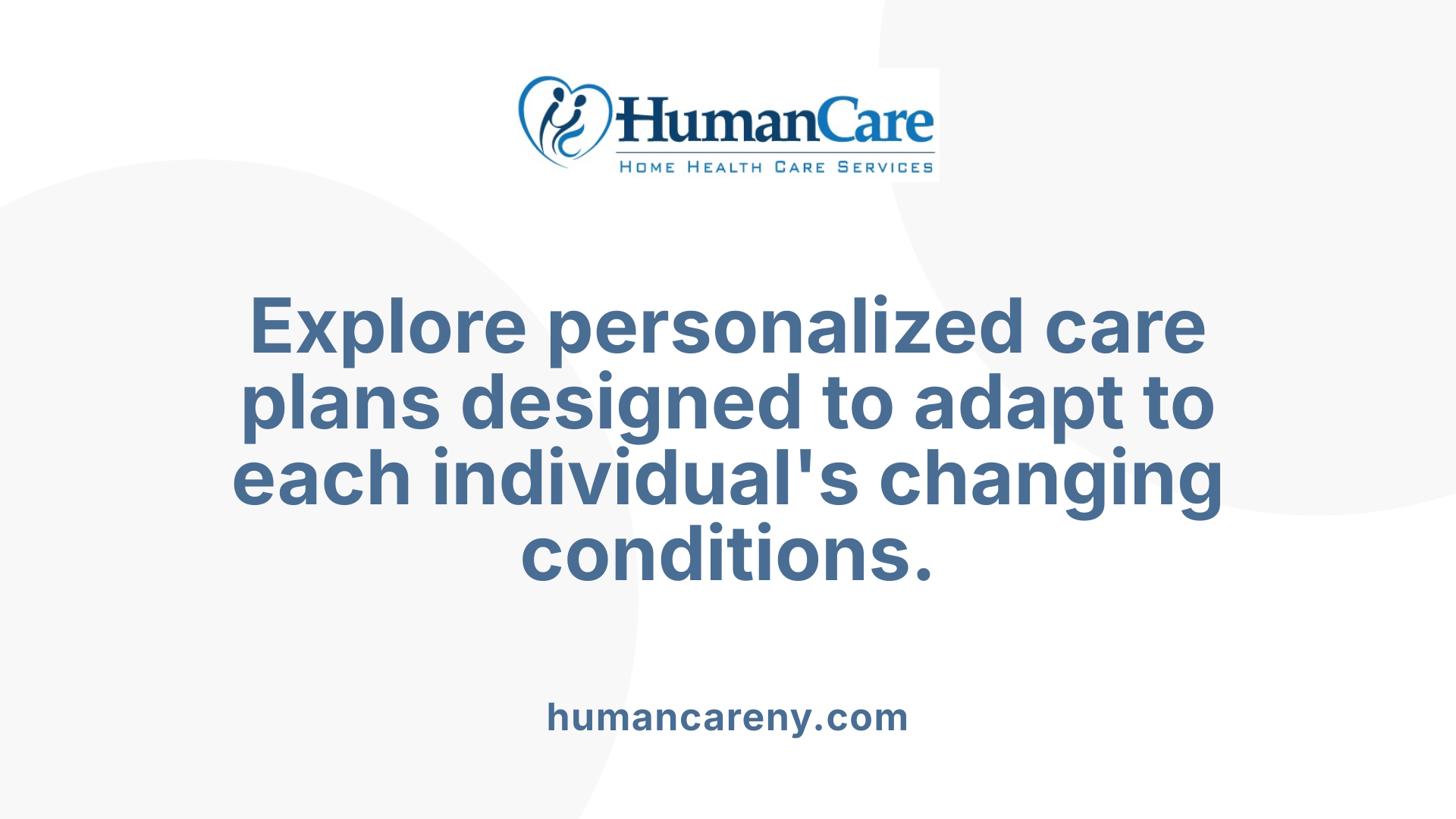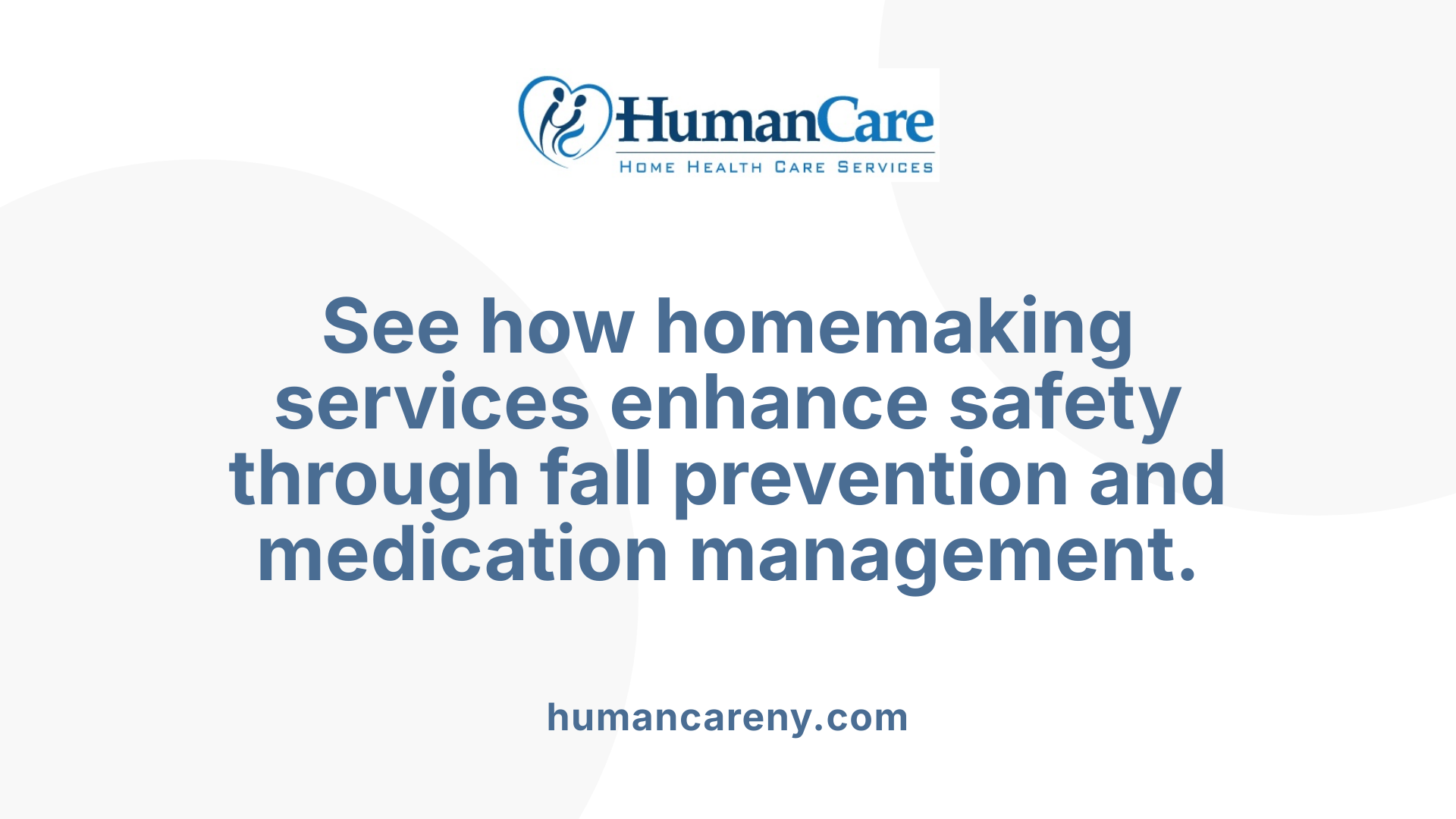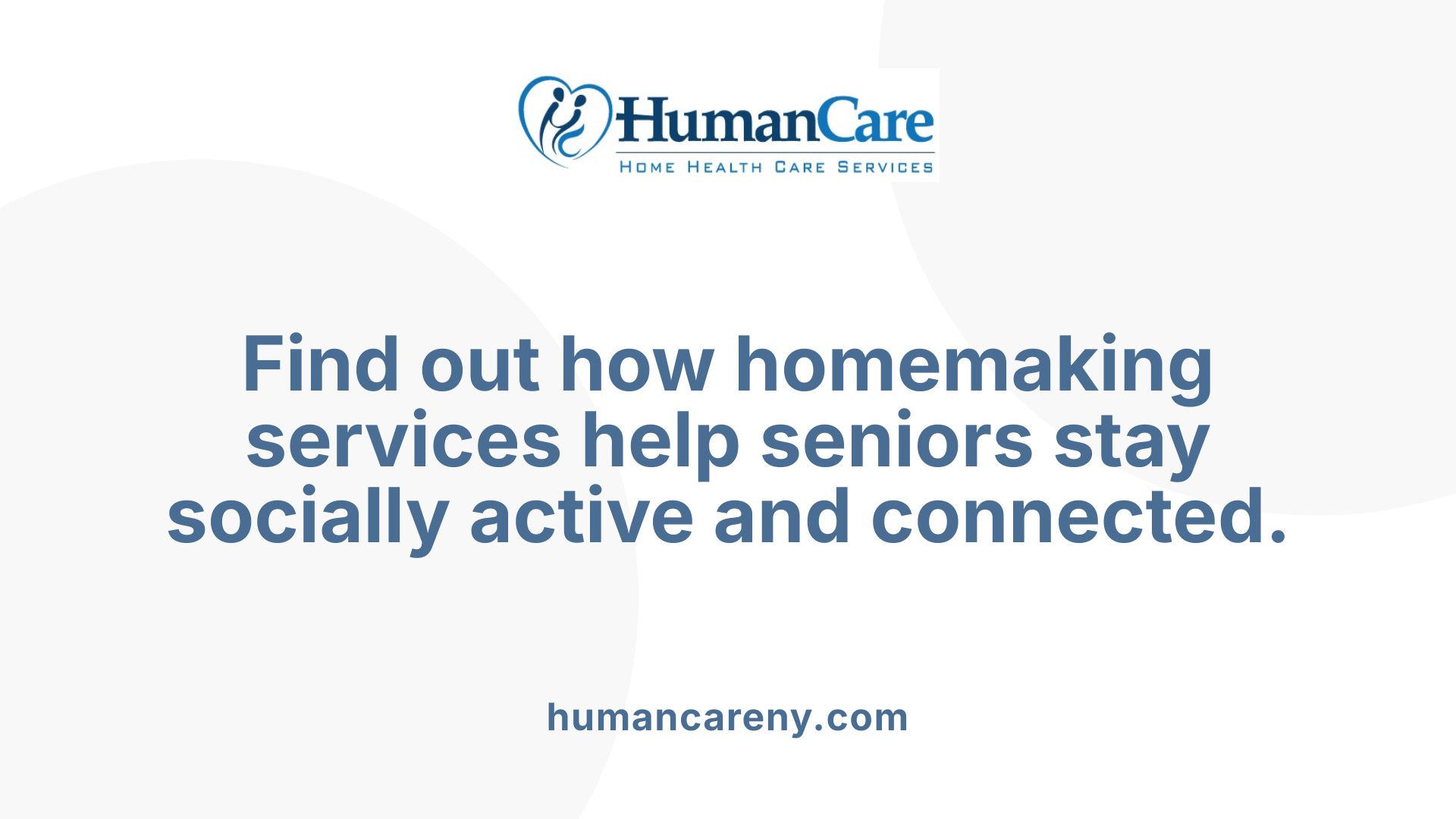The Rising Importance of Homemaking Services for Aging Adults
As the population ages, more seniors seek ways to maintain their independence and quality of life within the comfort of their own homes. Homemaking services have emerged as a vital resource that empowers elderly individuals by providing personalized, non-medical support tailored to their unique needs, enabling graceful aging at home with dignity and security.
Understanding Homemaking Services: Beyond Basic Housekeeping

What Are Homemaking Services?
Homemaking services are designed to assist elderly and disabled individuals in maintaining their independence while living at home. These services go beyond mere cleaning and household chores—they provide crucial support that helps clients manage daily activities comfortably and safely.
What Tasks Do Homemaking Services Include?
Homemaker assistance covers a wide range of non-medical tasks such as:
- Cleaning and housekeeping
- Meal preparation and grocery shopping
- Running errands
- Personal care including grooming and bathing
- Mobility support and medication reminders
- Companionship and emotional support
- Help with laundry and light housekeeping
These tasks are customizable to each person's unique needs and can adapt as those needs change.
How Are Homemaking Services Different From Home Health Care?
While both take place in the home, homemaking services are distinct from home health care. Homemaking services focus on non-medical assistance related to daily living and household management. In contrast, home health care involves medical services provided by licensed professionals, such as nursing, physical therapy, or medical monitoring. Homemaker support complements medical care, promoting a higher quality of life by addressing the practical and emotional aspects of daily living.
The Role of Homemaking Services in Promoting Independence and Emotional Well-Being

How Homemaking Assists with Independence
Homemaker services empower elderly and disabled individuals to maintain their independence by providing assistance with essential daily activities. These services often include household chores such as cleaning and meal preparation, as well as personal care tasks like grooming and mobility support. By supporting these routine functions, homemakers enable seniors to continue living comfortably in their own homes without relying entirely on family members or entering assisted living facilities.
Psychological Benefits
Receiving homemaker services can significantly reduce stress not only for the elderly individuals but also for their families. Customized care plans tailored to individual needs help clients feel understood and respected, fostering a positive emotional state. This personalized attention enhances psychological and emotional well-being, promoting a sense of security and peace of mind. Additionally, by preventing falls and managing health conditions, these services contribute to better overall health, thus reducing anxiety linked to medical emergencies.
Companionship and Emotional Support
Besides practical help, homemaker services provide valuable companionship that combats loneliness, a common issue among seniors. Caregivers engage clients through social activities, conversation, and assistance with hobbies, which strengthens social connections. This social interaction helps to alleviate depression and supports emotional resilience. Families also benefit from knowing their loved ones receive regular, trustworthy supervision, providing reassurance about their safety and well-being.
| Aspect | Service Provided | Impact on Independence and Emotional Well-Being |
|---|---|---|
| Daily Living Assistance | Cleaning, meal preparation, grooming | Sustains independent living and maintains routine |
| Health and Safety Support | Mobility aid, fall prevention, medication management | Enhances safety and reduces health risks |
| Emotional Companionship | Social interaction, hobbies, conversations | Reduces loneliness and fosters emotional health |
| Customized Care Plans | Tailored services based on client needs | Ensures personalized support and adaptability |
Customizable Care Plans: Tailoring Support to Individual Needs

What Are Personalized Care Plans?
Personalized care plans in homemaker services are designed to meet the unique needs of each individual. These plans cover a range of support activities including personal care, companionship, household chores, and specialized services like dementia care. The goal is to provide a level of assistance that promotes independence and improves quality of life.
How Are Care Plans Regularly Reviewed and Adjusted?
Care plans are not static; they undergo regular evaluations to reflect any changes in the client’s health or living situation. This ensures that services remain appropriate and effective. Adjustments might involve increasing assistance with mobility, adding meal preparation services, or enhancing safety measures within the home.
What Does Specialized Care Such as Dementia Support Entail?
Specialized care addresses specific conditions such as dementia, requiring tailored approaches to ensure safety and comfort. Caregivers are trained to provide compassionate support that includes memory assistance, behavioral management, and continuous supervision to reduce risks and enhance emotional well-being.
These customizable care plans empower seniors and those with disabilities by responding effectively to their evolving requirements, fostering a supportive environment in their own homes.
Safety and Health Benefits Provided by Homemaking Services

How do homemaking services help with fall prevention and home safety enhancements?
Homemaking services play a vital role in preventing falls and ensuring home safety, especially for elderly and disabled individuals. Caregivers assist by identifying and addressing hazards such as loose railings or poor lighting. These modifications help reduce the risk of accidents within the home environment, allowing clients to live safely and comfortably.
What role do homemaking services have in medication management?
Medication management is an essential component of homemaking services. Caregivers provide timely reminders and assistance with medication schedules, ensuring proper adherence. This helps prevent missed doses or accidental overdoses, contributing to better health outcomes.
How are chronic conditions monitored through homemaking services?
Although homemaking services are non-medical, trained caregivers support clients by observing health changes related to chronic conditions. They can recognize early warning signs and communicate concerns to healthcare professionals, promoting prompt intervention and reducing emergency visits or hospitalizations.
What are the responsibilities of trained caregivers in ensuring health and safety?
Trained homemaking service providers adhere to ethical standards, respect client privacy, and maintain confidentiality. They deliver personalized care tailored to individual needs, helping with grooming, mobility support, meal preparation, and safety supervision. Their presence reduces health risks by preventing accidents and assisting with condition management, thereby enhancing overall safety and quality of life.
| Area | Home-Based Support Details | Impact on Clients |
|---|---|---|
| Fall Prevention | Home safety checks, fixing hazards like loose railings, lighting | Reduced risk of accidents and injuries |
| Medication Management | Reminders and assistance for medication adherence | Improved health outcomes, fewer missed doses |
| Chronic Condition | Monitoring signs, communicating with healthcare professionals | Early intervention, reduced emergency hospital visits |
| Caregiver Role | Ethical care, personalized assistance, safety supervision | Enhanced safety, emotional well-being, independence |
Enhancing Social Engagement and Combating Loneliness

How do caregivers provide companionship?
Caregivers play a crucial role in offering companionship to seniors, which helps combat the feelings of social isolation and loneliness. By engaging in conversation, providing emotional support, and being a consistent presence, they fulfill an essential social and psychological need.
In what ways do homemaker services support social activities and hobbies?
Homemaker services often include assistance with hobbies and social outings, allowing seniors to participate in activities they enjoy. This support can involve helping with transportation, preparing for outings, or simply encouraging engagement in community events, hobbies, or visits with friends and family.
How do these services reduce social isolation and depression?
By providing regular social interaction and emotional support, homemaker services significantly reduce loneliness and its related risks of depression. This ongoing engagement fosters emotional well-being and helps seniors maintain connections with their community, leading to improved mental health and a higher quality of life.
Ultimately, homemaker services offer more than just physical assistance; they nurture social connections that are vital for emotional health, helping seniors feel valued and less alone.
Navigating Financial Aspects and Funding Sources
What are the limitations of Medicare coverage for homemaker services?
Medicare generally offers limited coverage for homemaker services since these are non-medical and focus on personal care and household assistance rather than skilled health care. This means seniors relying solely on Medicare may have to cover most costs out-of-pocket for homemaker help.
Are Medicaid and private insurance options available?
Medicaid can provide coverage for homemaker services, especially for eligible low-income seniors or those requiring long-term care support. Private insurance policies might also include benefits for in-home personal care, although coverage varies widely among plans.
What other government programs support homemaker services?
Various federal, state, and local programs offer assistance to seniors needing homemaker support. These include community-based services funded through Area Agencies on Aging and specific grants or subsidies aimed at helping older adults safely age in place.
How does the cost of homemaker services compare to assisted living?
Homemaker services generally present a more cost-effective alternative to assisted living or skilled nursing facilities. Personalized care plans can be adjusted based on individual needs, providing tailored support that avoids the higher fixed costs of institutional care.
By combining personal funds, government aid through Medicaid, and private insurance, many families can access homemaker services to help seniors maintain independence with financial feasibility.
Selecting the Right Provider: Key Considerations for Families and Seniors
Evaluating Provider Experience and Qualifications
When choosing a homemaker service, families and seniors should prioritize providers with solid experience and appropriate qualifications. Look for providers with trained staff who understand the specific needs of elderly and disabled clients. Checking a provider’s reputation through reviews or recommendations can offer valuable insight into their reliability and quality of care.
Importance of Ethical Standards and Privacy
It's essential to select providers who uphold strict ethical standards. Respect for the client's privacy and confidentiality protects personal and medical information, ensuring dignity and trust. Providers adhering to these principles contribute to a safer, more comfortable environment for seniors.
Communication and Trust Building
Effective communication between the caregiver, client, and family members forms the foundation of successful homemaker services. Open dialogue helps clarify expectations, address concerns, and adapt care as needs change. Building trust fosters a supportive relationship, enhancing emotional well-being for the senior and peace of mind for their loved ones.
Aligning Services With Expectations
Homemaker services should be customized to fit individual needs, whether assisting with household chores, personal care, or companionship. Families should ensure the provider offers flexible care plans and regularly reviews them to adapt to evolving requirements. Clear understanding of services helps avoid gaps in care and ensures satisfaction.
By focusing on these factors, families and seniors can select a provider that not only meets practical needs but also enhances overall quality of life in the home setting.
The Future of Homemaking Services: Technological Innovations and Policy Developments
How Are Advancements Improving Accessibility and Quality in Homemaking Services?
Recent developments in homemaking services focus on enhancing both accessibility and the quality of care provided. Innovations such as smart home technologies, remote monitoring tools, and mobile applications allow caregivers to more effectively support seniors and individuals with disabilities in their homes. These tools enable real-time communication, health tracking, and quick response to emergencies, which help maintain safety and independence.
What Is the Role of Technology in Personalized Care?
Technology plays an increasingly important role in delivering personalized homemaking services tailored to individual needs. For example, wearable devices can monitor vital signs, while digital care plans help caregivers adjust assistance based on changing health conditions. Video calls and social platforms facilitate companionship and social engagement, combating isolation. These advancements make it easier to customize care plans and provide consistent support, improving emotional and physical well-being.
How Do Government Policies Support Home-Based Aging?
Government initiatives aim to promote aging in place by supporting policies that improve access to homemaking services. Efforts include funding programs for home modifications that enhance safety, expanding Medicaid and private insurance coverage for non-medical care, and encouraging training standards for caregivers. Additionally, local Area Agencies on Aging and community organizations receive support to deliver resources and services that empower seniors to remain in their homes comfortably and securely. These policies align with trends toward personalized, home-based care models that meet the evolving needs of older adults.
Embracing Homemaking Services for Graceful Aging
Homemaking services offer a comprehensive, compassionate approach that enables seniors to age gracefully in their own homes. By combining personalized care, safety enhancements, emotional support, and practical assistance, these services not only preserve independence but also enhance seniors’ overall quality of life. With thoughtful provider selection and awareness of funding options, families can ensure their loved ones receive trusted, respectful support tailored to their evolving needs. As technological and policy advancements shape the future of in-home care, homemaking services will continue to play a crucial role in empowering seniors to live with dignity, comfort, and connection throughout their later years.



